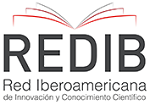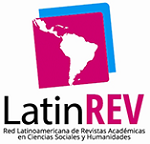Estrés académico y clima organizacional en estudiantes universitarios de una universidad pública en Perú en pospandemia Covid-19
DOI:
https://doi.org/10.15649/2346030X.3386Palabras clave:
Estrés académico, estresores, COVID 19, universitarios, clima organizacionalResumen
Con la COVID 19 se ha evidenciado que los estudiantes universitarios se han visto afectados en el aspecto psicológico que a su vez fue reflejada en reacciones fisiológicas, emocionales, cognitivas y conductuales, ¿Tendrá el clima organizacional de la universidad importancia para estos aspectos? El objetivo del presente trabajo de investigación, fue determinar la relación entre el estrés académico y el clima organizacional en los estudiantes de la Unidad Académica de Estudios Generales de una universidad pública en pospandemia COVID 19. Como metodología se empleó la investigación aplicada, nivel descriptivo, diseño correlacional, enfoque cuantitativo y, la técnica encuesta, además se propuso un modelo de interacción de variables por ecuaciones estructural SEM por análisis factorial exploratorio de los componentes. Se aplicaron los instrumentos Inventario de SISCO de estrés académico y clima organizacional en escala ordinal a una muestra de 1 427 estudiantes de una población de 1 500. Los resultados obtenidos indican que existe relación inversa débil y significativa entre estrés académico y clima organizacional en la muestra analizada (rho de Spearman =-0.13; sig= 5%), además que el afrontamiento y los síntomas (S) del estrés inciden en el diseño organizacional universitario (DO), y que DO influencia a la cultura organizacional (CUO) y el potencial humano (PH) del estudiante; los estresores afectan a PH, S y el clima organizacional.
Referencias
A. Pérez-Escoda, R. García-Ruiz, and F. J. Lena-Acebo, “Digital gender gap and digital competence among university students,” Aula Abierta, vol. 50, no. 1, pp. 505–514, Apr. 2021, doi: 10.17811/RIFIE.50.1.2021.505-5014.
G. E. Tafet and C. B. Nemeroff, “The Links Between Stress and Depression: Psychoneuroendocrinological, Genetic, and Environmental Interactions,” J Neuropsychiatry Clin Neurosci, vol. 28, pp. 77–88, 2016, doi: 10.1176/appi.neuropsych.15030053.
G. E. Tafet and C. B. Nemeroff, “The Links Between Stress and Depression: Psychoneuroendocrinological, Genetic, and Environmental Interactions,” J Neuropsychiatry Clin Neurosci, vol. 28, pp. 77–88, 2016, doi: 10.1176/appi.neuropsych.15030053.
Y. Chandra, “Online education during COVID-19: perception of academic stress and emotional intelligence coping strategies among college students,” Asian Education and Development Studies, vol. 10, no. 2, pp. 229–238, Mar. 2021, doi: 10.1108/AEDS-05-2020-0097.
E. Arce Varela, C. Azofeifa-Mora, M. Morera-Castro, and D. Rojas-Valverde, “Association between academic stress, body composition, physical activity and emotional skill in college women,” MHSalud, vol. 17, no. 2, pp. 1–27, Jun. 2020, doi: 10.15359/MHS.17-2.5.
M. Cassaretto-, P. Vilela-, L. Gamarra-, M. Cassaretto-, P. Vilela-, and L. Gamarra-, “Estrés académico en universitarios peruanos: importancia de las conductas de salud, características sociodemográficas y académicas,” Liberabit, vol. 27, no. 2, p. e482, Dec. 2021, doi: 10.24265/LIBERABIT.2021.V27N2.07.
L. Castillo, C. Lengua, and P. A. Pérez Herrera, “Caracterización psicométrica de un instrumento de clima organizacional en el sector educativo universitario Colombiano,” Int J Psychol Res (Medellin), vol. 4, no. 1, pp. 2011–2079, 2011.
J. J. A. P. O. C. I. R. R. Bermudez-Aponte, “El clima organizacional en universidades de Bogotá desde la perspectiva de los estudiantes | Revista Electrónica de Investigación Educativa,” 2015. https://redie.uabc.mx/redie/article/view/413 (accessed Jan. 23, 2023).
A. M. Segredo Pérez, “Clima organizacional en la gestión del cambio para el desarrollo de la organización Organizational climate in the change management for the development of the organization,” Rev Cub Salud Publica, vol. 39, no. 2, pp. 385–393, 2013.
J. Díaz Cassou, M. C. Deza, and K. Moreno, “Perú: Desafíos del desarrollo en el post COVID-19,” Sep. 2020, doi: 10.18235/0002658.
El País, “El caos político y la violencia agravan la crisis en Perú | Internacional | EL PAÍS,” El País, Dec. 2022. Accessed: Mar. 11, 2023. [Online]. Available: https://elpais.com/internacional/2022-12-17/el-caos-politico-y-la-violencia-agravan-la-crisis-en-peru.html.
A. Marco-Ahulló, I. Villarasa-Sapiña, and G. Monfort-Torres, “Estudio descriptivo sobre las diferencias de género en el estrés académico derivado del contexto COVID-19 en población universitaria española,” Retos, vol. 43, no. 1, 2022.
J. L. Castillo-Navarrete, A. Guzmán-Castillo, N. Claudio Bustos, S. Walter Zavala, and P. Benjamín Vicente, “Psychometric properties of sisco-II inventory of academic stress,” Revista Iberoamericana de Diagnostico y Evaluacion Psicologica, vol. 3, no. 56, pp. 101–116, 2020, doi: 10.21865/RIDEP56.3.08.
A. Guzmán-Castillo, C. Bustos N., W. Zavala S., and J. L. Castillo-Navarrete, “Inventario SISCO del estrés académico: revisión de sus propiedades psicométricas en estudiantes universitarios,” Terapia psicológica, vol. 40, no. 2, pp. 197–211, 2022, doi: 10.4067/s0718-48082022000200197.
L. Castillo, C. Lengua, and P. A. Pérez Herrera, “Caracterización psicométrica de un instrumento de clima organizacional en el sector educativo universitario Colombiano,” Int J Psychol Res (Medellin), vol. 4, no. 1, pp. 2011–2079, 2011.
R. E. Schumacker and R. G. Lomax, A beginner’s guide to structural equation modeling, 4th ed. 2016.
Keith and Timothy Z, Multiple Regression and Beyond, 3rd ed. 2019.
J. C. Anderson and D. W. Gerbing, “Structural Equation Modeling in Practice: A Review and Recommended Two-Step Approach,” Psychol Bull, vol. 103, no. 3, pp. 411–423, 1988, doi: 10.1037/0033-2909.103.3.411.
J. Owens, “Double Jeopardy: Teacher Biases, Racialized Organizations, and the Production of Racial/Ethnic Disparities in School Discipline,” Am Sociol Rev, vol. 87, no. 6, pp. 1007–1048, Dec. 2022, doi: 10.1177/00031224221135810.
S. Mohammad and B. Husted, “Skilled workforces and Law-abiding organizational climates in emerging markets,” J Bus Res, vol. 158, p. 113530, Mar. 2023, doi: 10.1016/J.JBUSRES.2022.113530.
S. Provost, M. MacPhee, M. Daniels, M. Naimi, and C. McLeod, “An evaluation of violence prevention education in healthcare,” Saf Sci, vol. 159, p. 106011, Mar. 2023, doi: 10.1016/J.SSCI.2022.106011.
L. J. Bird, M. McCabe, Y. Y. Lim, and K. Cornish, “Prevalence and correlates of subjective cognitive concerns in Australian university students during the COVID-19 pandemic” Front Psychol, vol. 13, p. 8299, Jan. 2023, doi: 10.3389/FPSYG.2022.1094497.
H. J. Javier, G. W. Quispe, and E. Castaneda, “La gestión institucional para acreditación y la satisfacción estudiantil en una universidad,” Proceedings of the 2021 IEEE 1st International Conference on Advanced Learning Technologies on Education and Research, ICALTER 2021, 2021, doi: 10.1109/ICALTER54105.2021.9675124.
K. C. Herman, J. Sebastian, C. L. Eddy, and W. M. Reinke, “School Leadership, Climate, and Professional Isolation as Predictors of Special Education Teachers’ Stress and Coping Profiles,” J Emot Behav Disord, p. 10634266221148974, Feb. 2023, doi: 10.1177/10634266221148974.
R. A. Sa’di, T. A. Sharadgah, A. Abdulrazzaq, and M. S. Yaseen, “Future Proposals for E-Learning at Conventional Tertiary Institutions as they Move on Past the COVID Experience,” Electronic Journal of e-Learning, vol. 20, no. 5, pp. 523–537, Dec. 2022, doi: 10.34190/EJEL.20.5.2565.
N. A. Uzir, I. E. Khairuddin, M. K. Zaini, and M. A. A. N. Izzuddin Izham, “Towards a Conceptual Framework to Mitigate Dropout Risk in Open and Distance Learning (ODL) in Higher Education Institutions,” Lecture Notes in Networks and Systems, vol. 488, pp. 907–914, 2023, doi: 10.1007/978-3-031-08090-6_58.
J. H. (Steph) Choi, C. D. O’Donnell, V. N. Phan, C. L. Coe, and Y. Miyamoto, “Role of the valuation of nervousness in cortisol responses to psychosocial stress task and task performance in European American and East Asian students,” Biol Psychol, vol. 177, p. 108495, 2023, doi: https://doi.org/10.1016/j.biopsycho.2023.108495.
M. R. M. Ortega et al., “Guiding actions to control academic stress and during professional practices in nursing students,” Archivos Venezolanos de Farmacologia y Terapeutica, vol. 40, no. 8, pp. 867–877, 2021, doi: 10.5281/zenodo.5792270.
E. Pinto, A. Villa, and H. Pinto, “Estrés académico en estudiantes de la Universidad de La Guajira, Colombia,” Rev Cienc Soc, vol. 28, no. 5, 2022, doi: 10.5281/zenodo.5792270.
Yamini Chandra, “Online education during COVID-19: perception of academic stress and emotional intelligence coping strategies among college students,” Asian Education and Development studies, vol. 10, no. 2, 2021, doi: https://doi.org/10.1108/AEDS-05-2020-0097.
E. Arce Varela, C. Azofeifa-Mora, M. Morera-Castro, and D. Rojas-Valverde, “Association between academic stress, body composition, physical activity and emotional skill in college women,” MHSalud, vol. 17, no. 2, pp. 1–27, Jun. 2020, doi: 10.15359/MHS.17-2.5.
M. Fallahi-Khoshknab, Z. Amirian, S. S. B. Maddah, H. R. Khankeh, and A. Dalvandi, “Instability of emotional relationships and suicide among youth: a qualitative study,” BMC Psychiatry, vol. 23, no. 1, p. 50, 2023, doi: 10.1186/s12888-023-04534-0.
J. J. A. P. O. C. I. R. R. Bermudez-Aponte, “El clima organizacional en universidades de Bogotá desde la perspectiva de los estudiantes,” Revista Electrónica de Investigación Educativa, vol. 17, no. 3, 2015, Accessed: Jan. 22, 2023. [Online]. Available: https://redie.uabc.mx/redie/article/view/413.
A. Samuels, A. Avital-Magen, and G. Schusheim, “The Effects of the First Phase of the Covid-19 Pandemic on the Mental Health of Children and Adolescents With preexisting Psychiatric Conditions,”, Feb. 2023, doi: 10.1177/00099228221150157.
N. Cansel and F. İ. Varol, “Burnout, mental health symptoms, and empathy in healthcare workers who care for children treated in a liver transplant center,” Pediatr Transplant, vol. 27, no. 2, p. e14430, Mar. 2023, doi: 10.1111/PETR.14430.
C. S. Sierra, D. M. Rojas, and J. J. Morales, “Gestión del conocimiento en sector de agua potable y saneamiento básico en Colombia,” Omnia Año, vol. 22, no. 1, pp. 1315–8856, 2016, Accessed: Jan. 22, 2023. [Online]. Available: https://www.redalyc.org/pdf/737/73747750008.pdf.
J. De la Fuente-Arias and J. Amate-Romera, “Unpleasant past experience as a determinant of cognitive, behavioral and physiological responses to academic stress in professional examination candidates,” Anales de Psicologia, vol. 35, no. 3, pp. 472–482, Oct. 2019, doi: 10.6018/analesps.35.3.323101.
D. Fernandez et al., “Hábitos alimentarios y estrés académico en estudiantes universitarios durante la pandemia del COVID-19, Paraguay 2021,” Revista chilena de nutrición, vol. 49, no. 5, pp. 616–624, Oct. 2022, doi: 10.4067/S0717-75182022000600616.
O. L. Solano Dávila, B. J. Salas Vásquez, S. M. Manrique Flores, and L. A. Núñez Lira, “Relación entre hábitos de estudio y estrés académico en los estudiantes universitarios del área de Ciencias Básicas de Lima (Perú),” Revista Ciencias de la Salud, vol. 20, no. 1, pp. 1–15, Feb. 2022, doi: 10.12804/revistas.urosario.edu.co/revsalud/a.10716.
G. Bono, K. Reil, and J. Hescox, “Stress and wellbeing in urban college students in the u.S. during the covid-19 pandemic: Can grit and gratitude help?,” International Journal of Wellbeing, vol. 10, no. 3, pp. 39–57, 2020, doi: 10.5502/ijw.v10i3.1331.
K. G. Chávez Mendoza, M. A. Camino Belizario, C. M. Calle Rojas, K. O. Villalba-Condori, D. Vinelli Arzubiaga, and C. R. Mejia, “Association between nutritional status, lifestyle and academic stress in undergraduate students: A case study,” Nutricion Clinica y Dietetica Hospitalaria, vol. 41, no. 4, pp. 39–47, 2021, doi: 10.12873/414chavez-mendoza.
A. M. Segredo Pérez, “Clima organizacional en la gestión del cambio para el desarrollo de la organización Organizational climate in the change management for the development of the organization,” Rev Cub Salud Publica, vol. 39, no. 2, pp. 385–393, 2013, Accessed: Jan. 22, 2023. [Online]. Available: http://scielo.sld.cu/scielo.php?script=sci_arttext&pid=S0864-34662013000200017.
N. Cea, “University social responsibility : the role of the media and its stakeholders Responsabilidad social universitaria : el papel de los medios de,” Revista de Ciencias de la Administración y Economía, vol. 8, no. 16, pp. 93–103, 2018.
L. Valdivieso-León, S. L. Mangas, J. Tous-Pallarés, and I. M. Espinoza-Díaz, “Coping strategies for academic stress in undergraduate students: Early childhood and primary education,” Educacion XX1, vol. 23, no. 2, pp. 165–186, 2020, doi: 10.5944/educxx1.25651.
A. Albani, F. Ambrosini, G. Mancini, S. Passini, and R. Biolcati, “Trait Emotional Intelligence and Self-regulated Learning in University Students during the COVID-19 pandemic: the mediation role of Intolerance of Uncertainty and COVID-19 Perceived Stress,” Pers Individ Dif, vol. 203, p. 111999, Mar. 2023, doi: 10.1016/J.PAID.2022.111999.
A. M. Alsufyani, A. E. Aboshaiqah, F. A. Alshehri, and Y. M. Alsufyani, “Impact of emotional intelligence on work performance: The mediating role of occupational stress among nurses,” Journal of Nursing Scholarship, vol. 54, no. 6, pp. 738–749, Nov. 2022, doi: 10.1111/JNU.12790.
M. Q. Navarro and M. Q. Navarro, “Emotional intelligence and academic stress in nursing students,” Ciencia y Enfermeria, vol. 26, no. 3, pp. 1–9, 2020, doi: 10.4067/s0717-95532020000100203.
A. C. Troth, K. Townsend, R. Loudoun, and M. Burgess, “Frontline managers’ task-related emotion regulation, emotional intelligence, and daily stress” Australian Journal of Management, Jun. 2022, doi: 10.1177/03128962221105407.
E. Michinov, “The Moderating Role of Emotional Intelligence on the Relationship Between Conflict Management Styles and Burnout among Firefighters,” Saf Health Work, vol. 13, no. 4, pp. 448–455, Dec. 2022, doi: 10.1016/J.SHAW.2022.07.001.
A. Oshri, Z. Cui, C. Carvalho, and S. Liu, “Is perceived stress linked to enhanced cognitive functioning and reduced risk for psychopathology? Testing the hormesis hypothesis,” Psychiatry Res, vol. 314, Aug. 2022, doi: 10.1016/j.psychres.2022.114644.
Y. C. Valdez López et al., “Nivel de estrés y estrategias de afrontamiento utilizadas por estudiantes de la licenciatura en Enfermería,” Enfermería Global, vol. 21, no. 1, pp. 248–270, Jan. 2022, doi: 10.6018/eglobal.441711.
Ministerio de Salud - Perú, “Entre 40 y 30 % de jóvenes de 19 y 26 años en el Perú presentaron síntomas de ansiedad y depresión tras la llegada de la pandemia de la COVID-19,” Instituto Nacional de Salud, 2022. https://web.ins.gob.pe/es/prensa/noticia/entre-40-y-30-de-jovenes-de-19-y-26-anos-en-el-peru-presentaron-sintomas-de-ansiedad (accessed Jan. 24, 2023).
F. Wilker et al., “Prevalence of depressive symptoms among dental students is influenced by sex, academic performance, smoking exposure, and sexual orientation,” Braz J Oral Sci, vol. 22, pp. e239237–e239237, 2023, doi: 10.20396/BJOS.V22I00.8669237.
A. Pérez-Escoda, R. García-Ruiz, and F. J. Lena-Acebo, “Digital gender gap and digital competence among university students,” Aula Abierta, vol. 50, no. 1, pp. 505–514, Apr. 2021, doi: 10.17811/RIFIE.50.1.2021.505-5014.
E. G. E. Araoz, M. M. Roque, N. A. G. Ramos, H. J. M. Uchasara, and M. C. Z. Araoz, “Academic stress in Peruvian university students in COVID-19 pandemic times,” Archivos Venezolanos de Farmacologia y Terapeutica, vol. 40, no. 1, pp. 88–93, 2021, doi: 10.5281/zenodo.4675923.
E. G. E. Araoz, “Psychological capital and academic stress in nursing students at a Peruvian university during the COVID-19 pandemic,” Gac Med Caracas, vol. 130, no. 4, pp. 737–744, 2022, doi: 10.47307/GMC.2022.130.4.8.
H. N. Al Houri et al., “The prevalence of stress among medical students in Syria and its association with social support: a cross-sectional study,” BMC Psychiatry, vol. 23, no. 1, p. 97, Dec. 2023, doi: 10.1186/S12888-023-04593-3.
J. Menting, F. van Schelven, C. Aussems, M. Heijmans, and H. Boeije, “Routine healthcare disruptions: a longitudinal study on changes in self-management behavior during the COVID-19 pandemic,” BMC Health Serv Res, vol. 23, no. 1, p. 196, Dec. 2023, doi: 10.1186/S12913-023-09119-X.
K. Hall, J. Evans, R. Roberts, R. Brown, C. Barnes, and K. Turner, “Mothers’ accounts of the impact of being in nature on postnatal wellbeing: a focus group study,” BMC Womens Health, vol. 23, no. 1, pp. 1–12, Jan. 2023, doi: 10.1186/S12905-023-02165-X.
T. Ke, W. Li, L. Sanci, N. Reavley, I. Williams, and M. A. Russell, “The mental health of international university students from China during the COVID-19 pandemic and the protective effect of social support: A longitudinal study,” J Affect Disord, vol. 328, pp. 13–21, May 2023, doi: 10.1016/J.JAD.2023.02.014.
C. M. Cheung, P. Bowen, K. Cattell, and J. Davis, “How the Well-Being of Construction Professionals Mediates the Effect of Work–Life Balance on Their Commitment to the Organization,” Journal of Management in Engineering, vol. 38, no. 4, p. 04022028, Apr. 2022, doi: 10.1061/(ASCE)ME.1943-5479.0001053.
A. A. Filipova, “The Effect of Work Stressors on RN Exhaustion: The Role of Perceived Organizational Support,” J Nurs Adm, vol. 53, no. 3, pp. 146–153, Mar. 2023, doi: 10.1097/NNA.0000000000001260.
K. Nielsen and J. Yarker, “What can I do for you? Line managers’ behaviors to support return to work for workers with common mental disorders,” Journal of Managerial Psychology, vol. 38, no. 1, pp. 34–46, Jan. 2023, doi: 10.1108/JMP-09-2021-0500.
E. K. Chiou and J. D. Lee, “Trusting Automation: Designing for Responsivity and Resilience,” Hum Factors, vol. 65, no. 1, pp. 137–165, Feb. 2023, doi: 10.1177/00187208211009995.
A. K. Mishra, R. K. Upadhyay, A. Chaudhary, and A. Singh, “Mediating effect of perceived organisational support in the relation between job stress and organisational commitment,” International Journal of Business and Systems Research, vol. 17, no. 1, p. 44, 2023, doi: 10.1504/IJBSR.2023.127718.
H. C. Wu et al., “醫院安全風氣:由科學到政策—臺灣針扎防治歷程,” 護理雜誌, vol. 69, no. 5, pp. 7–13, Oct. 2022, doi: 10.6224/JN.202210_69(5).02.
C. Khalil et al., “Experiences and Perspectives on Stressors and Organizational Strategies to Bolster Resiliency during the COVID-19 Pandemic: A Qualitative Study of Health Care Workers at a Tertiary Medical Center,” J Occup Environ Med, vol. 64, no. 12, pp. 1013–1017, Dec. 2022, doi: 10.1097/JOM.0000000000002626.
M. Srem-Sai, J. E. Hagan, P. N. Ogum, and T. Schack, “Assessing the prevalence, sources and selective antecedents of organizational stressors among elite football players and coaches in the Ghana premier league: Empirical evidence for applied practice,” Front Sports Act Living, vol. 4, p. 297, Jul. 2022, doi: 10.3389/FSPOR.2022.938619.
Descargas
Publicado
Cómo citar
Descargas
Número
Sección
Licencia
Derechos de autor 2023 AiBi Revista de Investigación, Administración e Ingeniería

Esta obra está bajo una licencia internacional Creative Commons Atribución 4.0.
La revista ofrece acceso abierto bajo una Licencia Creative Commons Attibution License

Esta obra está bajo una licencia Creative Commons Attribution (CC BY 4.0).










